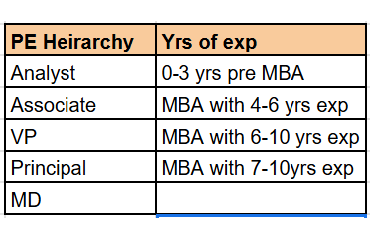YRAL is on a mission to empower users and creators to monetise their time spent on social media. Through gamification and Play-to-Earn mechanics, we incentivize active participation and reward your time. We're a fully on-chain SocialFi project built on the ICP blockchain, we decentralized in July 2023 via SNS. Founded by startup veterans, YRAL is undergoing rapid expansion and boasts a user base of over 150,000.
It is a decentralized social media platform (like TikTok) with integrated Prediction Markets, built on Internet Computer Protocol. The platform provides monetization avenues for 4.65 Billion social media lurkers (passive users) by enabling them to speculate on the short-video content created by other users on the platform. The vision is to create a user-driven and governed social media ecosystem with the users in the center. Not only would the users be given the majority share of the wealth that is being generated in the ecosystem, but the users will also have complete control over the various aspects of the platform such as governance, content moderation, development, and management, Making the ecosystem more equitable and user-centric.
About the Role
We're building our backend on the Internet Computer which promises web scale serverless backends hosted on trustless decentralized infrastructure. Our ideal candidate is:
• Excited about working with Rust
• 4 -7 years of experience in shipping production applications
• BTech in Computer Science Engineering from Tier 1 Colleges desirable
• Understand the finer details of working with the Rust compiler and compiling to alternate targets such as WebAssembly
• Experienced with TDD for unit testing individual functions and integration testing for testing publicly exposed APIs
• Comfortable working with a Git-style workflow where every commit deploys to a staging environment and merged pull requests deploy to production
• Able to set CI/CD pipelines for testing and deployment (canary, staging) using GitHub actions according to project needs
• Entrepreneurial mindset with strong decision-making skills
• Ability to move quickly without breaking things too much (we are dreamers)
• Ability to work under
India’s booming consumer market has over 300 million credit-eligible consumers, yet only 35million actively use credit
cards. At Snapmint, we are building a better alternative to credit cards that lets consumers buy now and pay later for a
wide variety of products, be it shoes, clothes, fashion accessories, clothes or mobile phones. We firmly believe that an
enduring financial services business must be built on the bedrock of providing honest, transparent and fair terms.
Founded in 2017, today we are the leading online zero-cost EMI provider in India. We have served over 10M consumers
across 2,200 cities and are doubling year on year. Our founders are serial entrepreneurs and alumni of IIT Bombay and
ISB with over two decades of experience across leading organizations like Swiggy, Oyo, Maruti Suzuki and ZS Associates before successfully scaling and exiting businesses in patent analytics, ad-tech and bank-tech software services.
India’s booming consumer market has over 300 million credit-eligible consumers, yet only 35 million actively use credit cards. At Snapmint, we’re reimagining how credit works—with a product-first approach that puts the consumer experience at the center. Our EMI and Pay Later solutions are designed from the ground up to be intuitive, accessible, and frictionless—enabling millions of Indians to purchase what they need, when they need it, whether it’s fashion, electronics, or daily essentials. From seamless onboarding to instant approvals and zero-cost EMIs, all our products are engineered to empower users while maintaining transparency and trust. We believe that enduring financial services are
built not just on fair terms, but also on products that solve real problems with simplicity and scale. Founded in 2017, Snapmint is now India’s leading online zero-cost EMI provider. With over 10 million consumers served across 2,500 cities—and doubling year on year—our growth is a direct outcome of building a world-class online product that people love and rely on.
At United Breweries, we brew from the heart, bringing together natural ingredients under the perfect conditions, and transforming them into something the world loves. Our strong consumer connect and the iconicity of India’s favourite beer Kingfisher has helped us become the market leader and delight consumers. Our portfolio ranges from beer to non–alcoholic beverages, with brands such as Kingfisher Strong, Kingfisher Ultra, Heineken, Heineken Silver, Amstel, Heineken 0.0 and Radler.
India’s booming consumer market has over 300 million credit-eligible consumers, yet only 35 million actively use credit cards. At Snapmint, we’re reimagining how credit works—with a product-first approach that puts the consumer experience at the center. Our EMI and Pay Later solutions are designed from the ground up to be intuitive, accessible, and frictionless—enabling millions of Indians to purchase what they need, when they need it, whether it’s fashion, electronics, or daily essentials. From seamless onboarding to instant approvals and zero-cost EMIs, all our products are engineered to empower users while maintaining transparency and trust. We believe that enduring financial services are
built not just on fair terms, but also on products that solve real problems with simplicity and scale. Founded in 2017, Snapmint is now India’s leading online zero-cost EMI provider. With over 10 million consumers served across 2,500 cities—and doubling year on year—our growth is a direct outcome of building a world-class online product that people love and rely on.
A leading multibillion-dollar player in the global alcobev industry. The company is known for its iconic portfolio of brands, innovation-driven culture, and strong market presence across emerging and developed economies. Headquartered in Bangalore, it continues to push the boundaries of excellence, sustainability,
and talent-driven growth.
Truva is a modern real-estate tech startup based in Mumbai, founded by a team who themselves were irritated by the messy, opaque process of buying a home. They hand-pick homes in well-maintained societies, renovate them, check legal titles, and offer the list at fair, data-driven prices—so you don’t have to deal with surprise costs, hidden issues or endless broker calls. Their goal is simple but meaningful: make buying (or selling) a home a joyful, trust-filled experience rather than a stress-filled ordeal.
India’s booming consumer market has over 300 million credit-eligible consumers, yet only 35 million actively use credit cards. At Snapmint, we’re reimagining how credit works—with a product-first approach that puts the consumer experience at the center. Our EMI and Pay Later solutions are designed from the ground up to be intuitive, accessible, and frictionless—enabling millions of Indians to purchase what they need, when they need it, whether it’s fashion, electronics, or daily essentials. From seamless onboarding to instant approvals and zero-cost EMIs, all our products are engineered to empower users while maintaining transparency and trust. We believe that enduring financial services are
built not just on fair terms, but also on products that solve real problems with simplicity and scale. Founded in 2017, Snapmint is now India’s leading online zero-cost EMI provider. With over 10 million consumers served across 2,500 cities—and doubling year on year—our growth is a direct outcome of building a world-class online product that people love and rely on.
💡Pat yourself If you’re into these Powerhouses-5 Industries Set to Transform the Nation by 2030 🚀🔥
As India strides into a new era of economic evolution, certain industries are poised to disrupt the status quo, driving unprecedented growth and innovation. If you're part of these sectors, consider this a nod to your foresight; if not, it's time to take note. Here are five industries set to redefine India's economic landscape in the next 5-8 years. 🌟📊🚀
1. Healthcare Industry 🏥💊
India's healthcare sector is on a meteoric rise, projected to reach $638 billion by 2025, up from $110 billion in 2016. This surge is fueled by a marked increase in lifestyle diseases such as diabetes, heart disease, hypertension, and cancer. The demand for healthcare services and infrastructure has never been higher. 📈🏥💡
Furthermore, the wellness industry is booming, with the fitness and wellness market expected to grow at a 27% CAGR, reaching $12 billion by
2. Insurance Sector 🏦
With the escalating demand for healthcare services, comes a parallel increase in health insurance uptake. 📉
Secondly, awareness is spreading rapidly, thanks to social media platforms like Instagram Reels 🎥 and YouTube Shorts ▶️, which have become instrumental in educating the masses about the importance of health and life insurance. The health insurance market is expected to expand from INR 0.91 trillion in 2024 to INR 1.5 trillion in 2029
3. Renewable Energy ⚡🌞🌍
India's commitment to renewable energy is unwavering, with the sector projected to attract investments worth ₹30.5 lakh crore by 2030
The government's focus on solar, wind, and energy storage solutions is evident in its ambitious target of achieving 500 GW of non-fossil fuel power by 2030. ⚡🔋🌎
The electric vehicle (EV) 🚗⚡segment is also gaining momentum, with investments of ₹25,000 crore anticipated over the next few years, aiming for EVs to constitute a significant share of new vehicle sales by FY2030
4. Technology & IT 💻
The digital transformation wave continues to sweep across India, bolstered by initiatives like "Digital India" 📡, which have expanded digital infrastructure, internet penetration, and digital payment systems such as UPI. The demand for emerging technologies like artificial intelligence (AI) and cloud computing are at an all-time high.
A testament to AI's growing influence is the recent trend of individuals generating "GHIBLI" portraits 🎨 through platforms like ChatGPT, showcasing AI's integration into everyday life
5. Consumer Goods & E-commerce 🍔
The Indian consumer landscape is undergoing a seismic shift, driven by:
✅ Increased internet penetration
✅ Smartphone adoption
✅ Changing consumer behaviors
✅ The convenience of online shopping
✅ Globalization of trade
✅ Development of digital payment solutions
This transformation presents vast opportunities for businesses and investors alike. 📈💼
As these industries gear up to redefine India's economic fabric, the question arises: Which of these burgeoning sectors aligns with your aspirations💭?🚀🔍💡
Whether you're an employer, employee, company, youth, investor, or analyst, the time is ripe to position yourself in the vanguard of India's economic revolution.
---
References & Sources
1. Financial Express - Indian Healthcare Market
2. Zee Biz - Renewable Energy Investments
3. Financial Times - Renewable Energy Challenges
4. Economic Times Energy - EV Market Projections
0 Q&A
🎯 “Techie or Not, Apply Smart — Here’s Where the Right Jobs Are Hiding!”
Job hunting in 2025 feels like dating apps — you keep swiping, hoping to land the right one. But here’s the catch: If you're a techie stuck on a non-tech portal (or vice versa), you’re bound to get ghosted.
Let’s cut the confusion. Based on verified industry usage and platform specialization, here are India’s top 3 tech and top 3 non-tech job portals — no fluff, just facts:
💻 Top 3 Tech Job Portals
🔹 Hirist – Used by leading startups and tech giants (like Swiggy, Paytm, and Flipkart), this one’s a goldmine for developers, product managers, and data folks.
🔹 CutShort – Known for fast, AI-based hiring. Ideal for product-led startups hiring full-stack devs, UI/UX designers, and growth hackers.
🔹 TechGig – A coding + hiring platform. Helps companies evaluate skills via challenges. Great for freshers and mid-level devs looking to prove their chops.
📋 Top 3 Non-Tech Job Portals
🔸 IIMJobs – Best for finance, consulting, sales leadership, and HR roles. Premium jobs for serious professionals.
🔸 Naukri.com – The OG. Covers everything from operations to marketing, HR to sales. Still the #1 choice for large-scale hiring.
🔸 Foundit (formerly Monster India) – Revamped and easy to navigate. Known for roles in marketing, admin, operations, customer service, and more.
Moral of the story? Don’t apply everywhere. Apply where it makes sense. Your next job might just be a click away — on the right site.
🎬 Next:
Know someone applying blindly? Share this with them and save time, energy, and sanity.
0 Q&A
Welcome to EMI Nation – where we flex first & worry later. 👀
India has always been that “save every rupee” kinda country. But not anymore. We’re slowly turning into a spending economy—and social media has a lot to do with it.
From the latest iPhones to Bali trips, there’s a crazy rise in demand for stuff that makes life look luxe. And let’s be real—social media platforms have made showing off a lifestyle. That quick dopamine rush from likes? Addictive.
Now, it’s cool to level up your lifestyle. But here’s the flip side: we’re spending way beyond our means. EMIs and loans have become the go-to move. Why save for 6 months when you can just “Buy Now, Pay Later,” right?
Banks and fintech apps have made borrowing super easy, and loan numbers in India are breaking records. But how much of this is for what we truly need, and how much is just to keep up with what’s trending online?
The pressure to have that “Instagram-worthy life” is real. New phone? Check. Designer fit? Check. Europe trip on EMI? Double check. But behind the reels, many are getting trapped in debt.
So, big question: Are we actually getting richer as a country, or just better at looking rich?
5 Q&A
Reels: The Silent Killer Hiding in Your Pocket
We’ve all been there. You open your phone “just to check one thing” and—boom—you’re 72 minutes deep into scrolling reels. Somewhere between a cute puppy video and a billionaire success story, you forget what you came for. And then it hits you—*the guilt*. Work is pending, chores are waiting, and your brain feels… fried.
Reels and short videos are incredible sources of information and entertainment. But here’s the tricky question—is our brain really equipped for this kind of content?
---
1. Emotional Whiplash is Real
Your brain is the most powerful thing God gifted you. It’s built to process one emotion at a time. You can’t laugh and cry at the same moment, right? But reels force your brain into emotional gymnastics:
- 0:02 – Delicious biryani (hungry!)
- 0:05 – Horrifying accident (sad!)
- 0:08 – 19-year-old becomes a billionaire (competitive!)
- 0:12 – Poor man searching for food (grateful… or guilty?)
Within seconds, you’ve felt 10 different things. That’s not multitasking—it’s emotional chaos. Over time, this dulls your ability to feel any emotion deeply.
---
2. The Trap is Invisible
No one says, “I’m going to watch reels for the next 3 hours.” The scary part? You don’t even realize when you’ve been sucked in. Your brain stops being in charge—you’re just swiping.
---
3. Post-Scroll Blues
Ever felt low, restless, or oddly sad after long scrolling? That’s your brain struggling after rapid-fire emotional switches. And since it happens repeatedly, it’s no longer “just a bad day.” It’s rewiring your mood patterns.
---
4. Reality Gets Distorted
The internet has millions of “experts”—teachers without degrees, traders without licenses, astrologers predicting your breakfast. A little knowledge used to be dangerous. Now, *abundant unverified knowledge* is even worse. People buy impulsively, compare endlessly, and believe things far from reality.
---
5. It’s for Everyone… and That’s a Problem
A 2-year-old and a 60-year-old consuming the same unfiltered feed? Hazardous. What’s healthy for one mind might be harmful for another. And many of us don’t even follow what we “learn” online in real life—we just keep scrolling.
---
So, What’s the Fix?
I’m not against reels. They’re amazing for quick learning and staying updated. But consumption should be intentional. Set a personal limit—maybe 15 to 30 minutes a day. Watch, enjoy, learn… then *log off and live*.
Because at the end of the day, your brain is too valuable to be a slot machine for random content.
Remember: You own your phone. Don’t let your phone own you.
0 Q&A
Compensation at various levels at Global PE funds in India
Private Equity (PE) is one of the most coveted industries in finance. One of the highest paying industries, Private Equity (PE) attracts absolute creme-de-la-creme of MBA graduates, management consultants, and investment bankers. Also highly competitive, PE funds hire only a handful of investment professionals across levels in a year.
A+ research team has spoken to multiple PE professionals across domestic and global PE funds in India. In the table below, we have compiled average base compensation, variable (bonus) and carry components at blue chip global PE funds in India.
| Role | Yrs of exp | Large Global PE Funds (base salary) | Bonus (as a % of base) | Carry | |
| Analyst | 0-3 yrs pre MBA | $60K-$80K | 60-100% |
Notional Carry or LTI or Certain bonus is paid in the form of carry distribution in case of multi-billion dollar funds*
|
|
| Associate | MBA with 4-6 yrs exp | $100K-$150K | 80-100% | ||
| VP | MBA with 6-10 yrs exp | $200K- $250K | 90-120% |
Estimated 0.5%-2% of the carry pool for a multi billion dollar fund*
|
|
| Principal | MBA with 7-10yrs exp | $300K-$400K | 90-120% | ||
| MD | $500K+ | 100-150% | |||
| Notes: |
These figures are estimates of salaries at top global PE funds like Bain, Carlyle, TPG, Warburg Pincus, General Atlantic and the likes
|
||||
|
Buyout focused funds have 30-50% higher base salaires and respective bonuses
|
|||||
|
*These are estimates from the information gathered through our network; might change/vary with more data
|
|||||
0 Q&A







